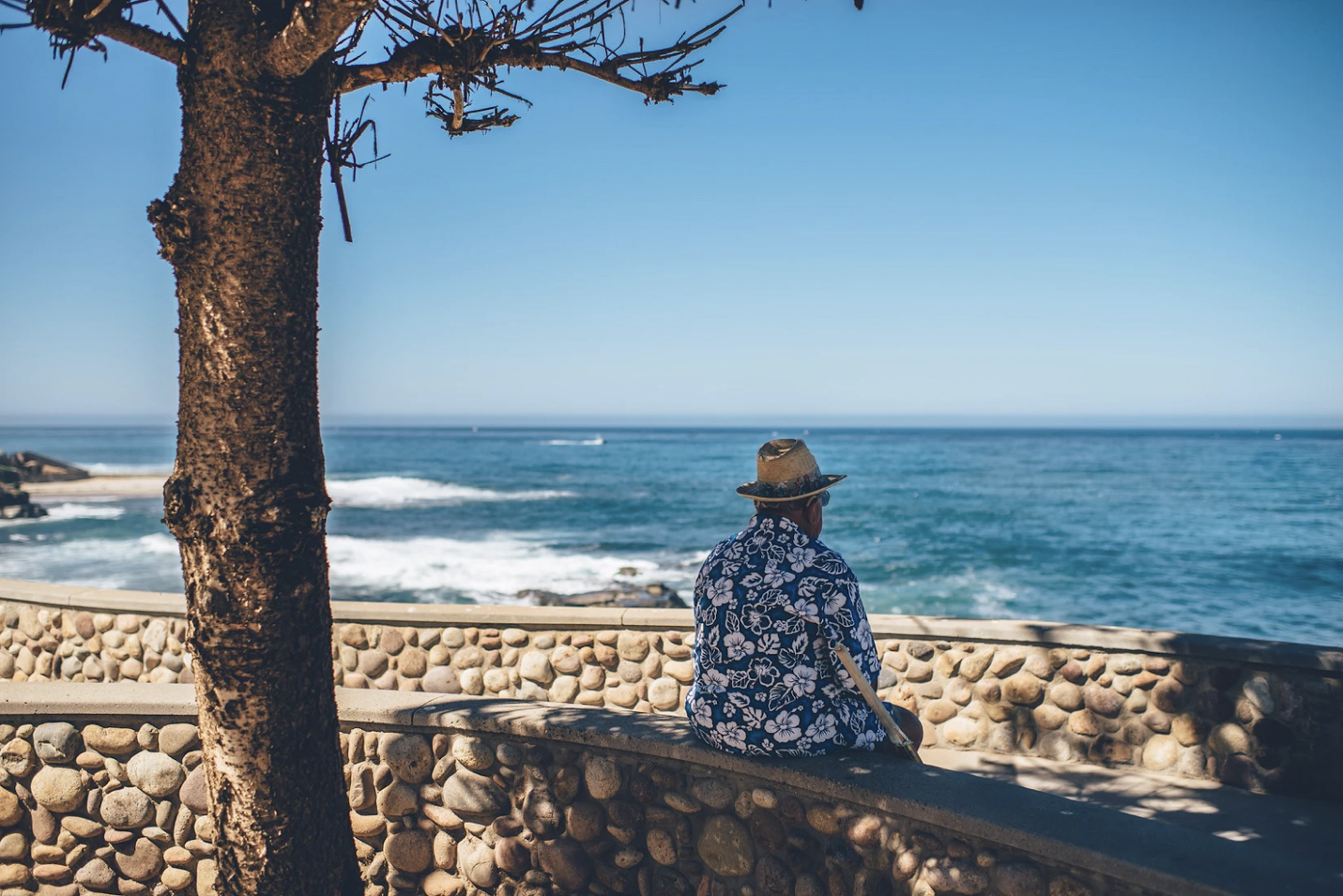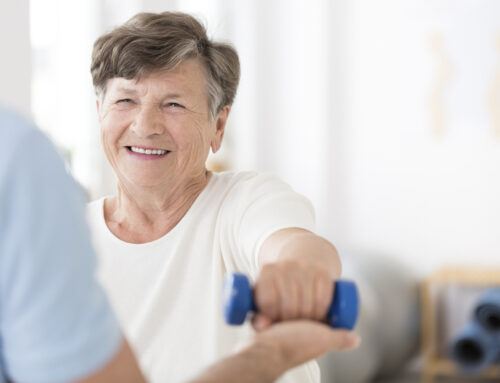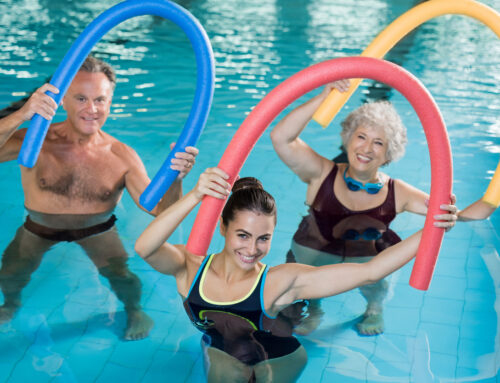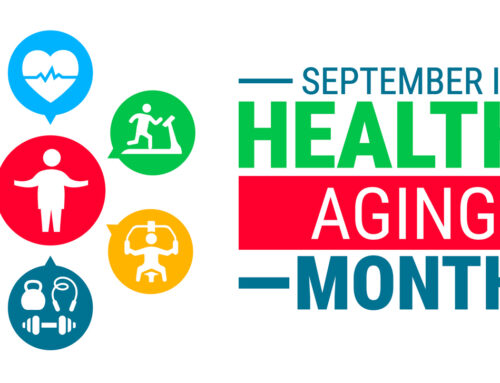Anxiety is a common mental health problem for many different age groups. And some seniors, who face issues such as deteriorating health, financial concerns, and limited mobility, can be even more susceptible to anxiety. Plus, add the fact that seniors are very vulnerable to COVID-19, further aggravating the feelings of worry and stress. To help alleviate those concerns, FirstLantic.com offers some practical ways to help seniors overcome anxiety.
Cultivate a Strong Social Network
Increased isolation, especially during a pandemic, could exacerbate anxiety and loneliness. Some seniors even have to contend with limited mobility and losing loved ones, making it very hard to feel part of a community.
With states and cities now opening up restrictions, seniors should take advantage of interacting with other members of their local community again. Whether it’s going to a senior center, joining a bridge club, attending lectures, getting out of the house, and socializing with others reduces loneliness. If this isn’t possible, there are options to join groups online or find a home healthcare service that offers companionship. Having a companion who can cook, watch a movie, accompany them to appointments or social events, or even conversing with them can make a big difference and ease feelings of isolation.
Also, families with senior members should make it a point to reach out and keep in contact via video or in person, if possible, at least once a week. Knowing that someone is willing to listen and empathize with their worries can be reassuring.
Stay Busy with Hobbies and Interests
Getting one’s mind off of problems by engaging in hobbies can help alleviate anxiousness. It diverts the focus from things that aggravate anxiety to activities that stir interest. For instance, working on that garden patch can stimulate the mind and the body as well with some fresh air and exercise. Or, if you’ve always loved movies or books, it can take one back to a happier time. They are even discussion groups on social media for books or films that enable interaction with people who share the same interests.
Maintain an Active Lifestyle
Exercise can help improve a senior’s mental and physical health. Thus, being active is always an essential element of a stimulating life. During training, the body releases neurochemicals called endorphins. These chemicals will not just produce that good feeling after a fitness regimen; they will also help reduce stress and anxiety. For this reason, seniors should attend fitness activities at community centers or similar venues. But if getting into strenuous exercise is not possible, even a simple walk around the neighborhood or activity suitable for their level of mobility could give them the same endorphin rush that their bodies need.
Stick to a Routine
Establishing a routine can help seniors avoid anxiety triggers. For instance, having their breakfast before listening to the news could help ease anxiousness throughout the day.
Routine is very reassuring for seniors who’ve had to deal with many changes in their bodies and environment. By giving them a predictable schedule, it gives them a sense of safety and calmness. They know what to expect and what they’re supposed to do at a particular time or day. This is especially true for seniors who have dementia because a steady routine offers a semblance of predictability even when the mind is confused.
Avoid Things that Can Trigger or Worsen Anxiety
Anxiety can present as both mental and physical distress, such as palpitations or gasping for breath. That’s why it’s essential to know the triggers that could set off the slew of anxiety symptoms. For instance, those with anxiety should cut back on their caffeine and alcohol intake. Caffeine is a stimulant. And drinking coffee or energy drinks can cause heart palpitation, heightened alertness, and a jittery feeling similar to panic attacks.
Alcohol, on the other hand, is both a stimulant and a depressant. After the initial stimulation, it depresses the central nervous system, giving a sense of calm. However, after those effects wear off, alcohol could make anxiety worse. That’s because it also changes the levels of neurochemicals in the brain. Thus, seniors dealing with pressure are better off limiting alcohol intake as it may induce episodes of anxiety attacks.
Some combinations of medications or the actual medication could also trigger the onslaught of anxiety symptoms. Drugs that have this possible adverse side effect include medications for asthma and thyroid, as well as over-the-counter decongestants.
And eliminate stressful activities like watching the news if that leads to anxiety or find other information sources that share positive things in the world rather than always focusing on the doom and gloom.
Volunteer
Volunteering helps us to focus on others rather than ourselves. And helping people can also provide a rush of endorphins. There are many opportunities for seniors to volunteer from home, even if it’s impossible to get out.
- StoriiTime is a free volunteering opportunity designed directly for seniors. Volunteer by reading books to children through a video call.
- Be My Eyes is a free app you can download. Visually impaired users can request help with identifying things. Requests vary, such as helping them pick out a can of soup or asking you to read something. You can get a request at any time, and most requests take 2-5 minutes to complete. Available for Android and iOS products.
- Selfhelp VSC is an organization that provides group classes to seniors who are homebound. You can apply to be a volunteer group facilitator and teach a lesson about something you are passionate about, such as art, music, or cooking.
- Learn To Be is a nonprofit connecting underserved students to volunteer tutors. Your time commitment could be as little as an hour a week. Meet a student and their family, schedule a time that works best for both of you, and help them learn.
- Smithsonian Digital Volunteers can help the Smithsonian Institution categorize data and participate in various research programs. If you love science or nature, this could be a perfect fit.
Practice Stress-Reducing Techniques
There are practical and straightforward techniques that can reduce stress and alleviate symptoms of anxiety. Practicing mindful meditation, yoga, and deep breathing exercises can be a good start as they may help lower levels of the stress hormone cortisol. These exercises can keep one anchored and reduce fear and worry of the future, thus improving mood and increasing self-esteem.
Seek Professional Help
There’s no shame in asking for help. Those who are experiencing recurring and moderate-to-severe symptoms of anxiety should consult with healthcare professionals. If therapy or none of the other aforementioned techniques help, anti-anxiety medications might be what’s needed. Aside from physicians, seniors may also require the care and attention of a home healthcare specialist such as a home healthcare aide or skilled nurse. These are trained professionals to perform a range of home services like medication management, housekeeping, providing transportation and companionship, administering medication, and personal care. They could ease the daily stress, especially for seniors who are living alone.
Anxiety can be a debilitating problem. To suffer from this disorder on top of other medical issues can be crippling. This is why seniors need to have their family’s support above all else when they suffer anxiety. Knowing people care and love them enough to look out for their welfare can be the best motivation to help them overcome anxiety.
To get more information about how FirstLantic Healthcare can help, click here.
To read more of FirstLantic’s blogs, click here.
 AVAILABLE 24 HOURS A DAY/7 DAYS A WEEK
AVAILABLE 24 HOURS A DAY/7 DAYS A WEEK Careers
Careers







